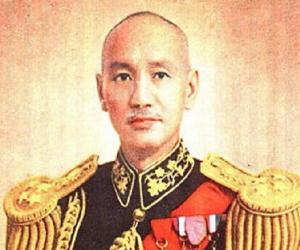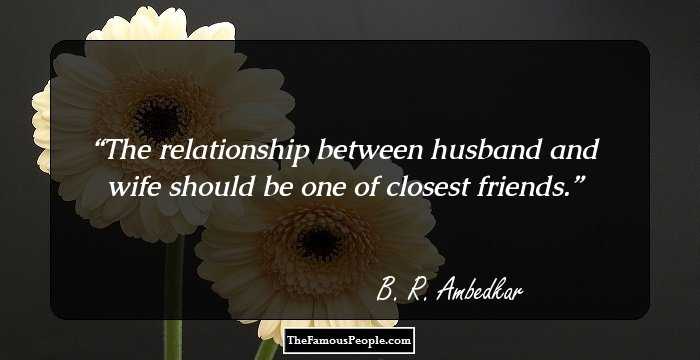You must all be aware that modern war is not a mere matter of military operations. It involves the whole strength and all the resources of the nation. Not only soldiers, but also all citizens without exception, take part.
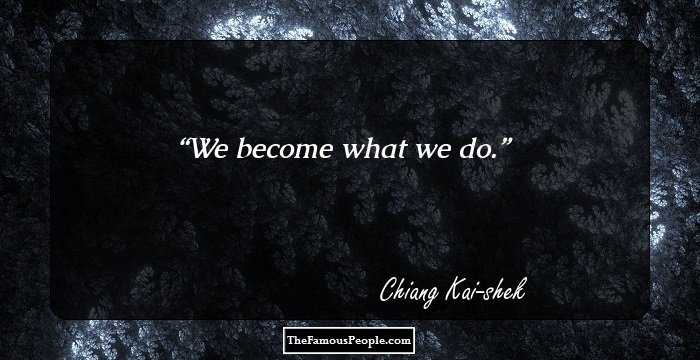
We become what we do.
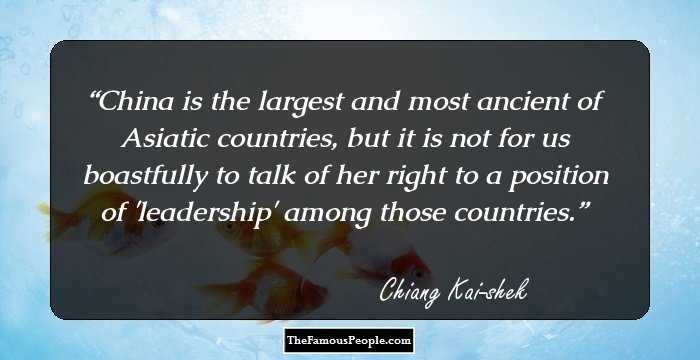
China is the largest and most ancient of Asiatic countries, but it is not for us boastfully to talk of her right to a position of 'leadership' among those countries.
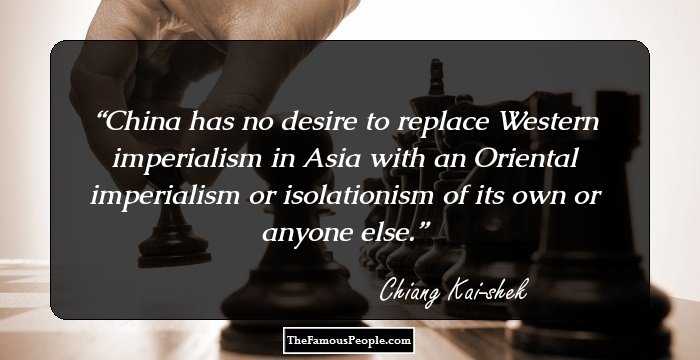
China has no desire to replace Western imperialism in Asia with an Oriental imperialism or isolationism of its own or anyone else.

I have always told my subordinates that when they commit any mistakes, the blame must be laid on the superior officers.
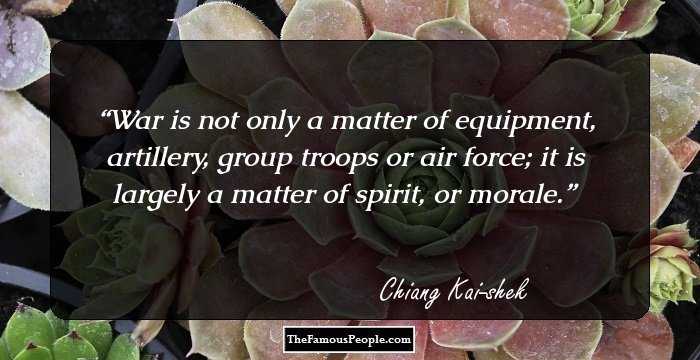
War is not only a matter of equipment, artillery, group troops or air force; it is largely a matter of spirit, or morale.
Democracy is liberty - a liberty which does not infringe on the liberty nor encroach on the rights of others; a liberty which maintains strict discipline, and makes law its guarantee and the basis of its exercise. This alone is true liberty; this alone can produce true democracy.
Because of my intense hopes for the youth of China, I feel very keenly my responsibility for their future success or failure. The fate of China lies in their hands. The responsibility for organizing and training them to become worthy citizens of China, able to undertake the tasks of Resistance and Reconstruction, is mine; I cannot evade it.
My long struggles as a soldier of the Chinese Revolution have forced me to realize the necessity of facing hard facts. There will be neither peace, nor hope, nor future for any of us unless we honestly aim at political, social and economic justice for all peoples of the world, great and small.
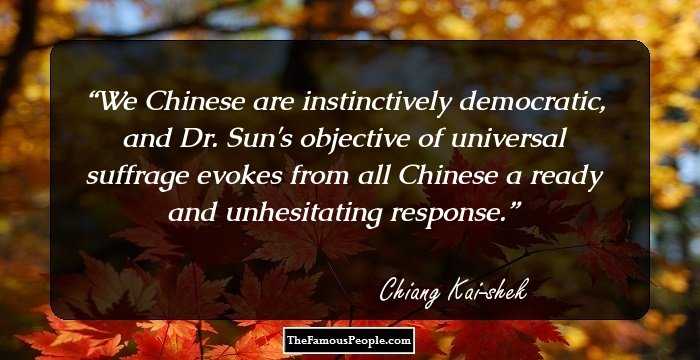
We Chinese are instinctively democratic, and Dr. Sun's objective of universal suffrage evokes from all Chinese a ready and unhesitating response.
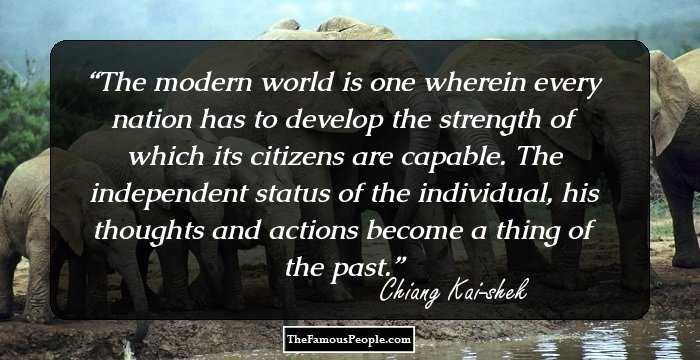
The modern world is one wherein every nation has to develop the strength of which its citizens are capable. The independent status of the individual, his thoughts and actions become a thing of the past.
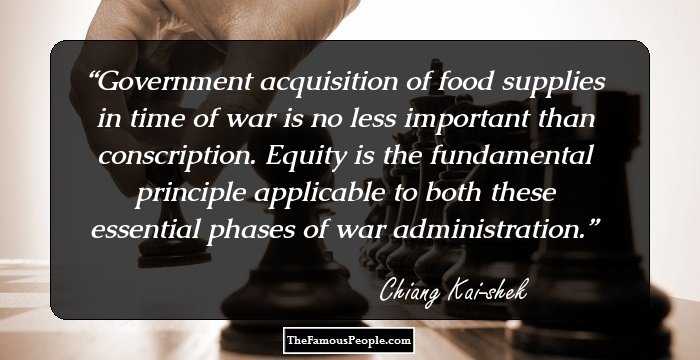
Government acquisition of food supplies in time of war is no less important than conscription. Equity is the fundamental principle applicable to both these essential phases of war administration.
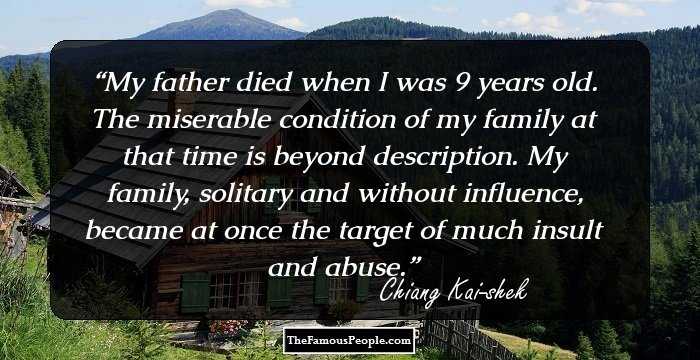
My father died when I was 9 years old. The miserable condition of my family at that time is beyond description. My family, solitary and without influence, became at once the target of much insult and abuse.
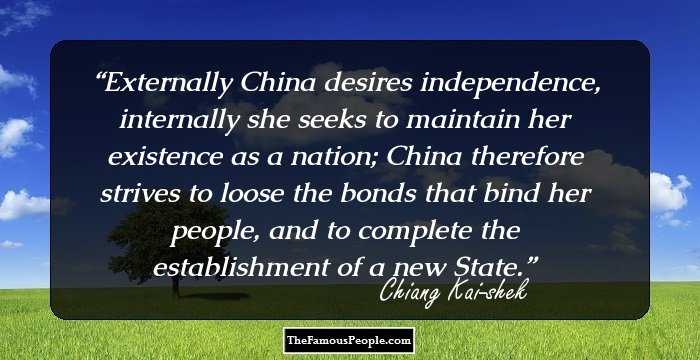
Externally China desires independence, internally she seeks to maintain her existence as a nation; China therefore strives to loose the bonds that bind her people, and to complete the establishment of a new State.
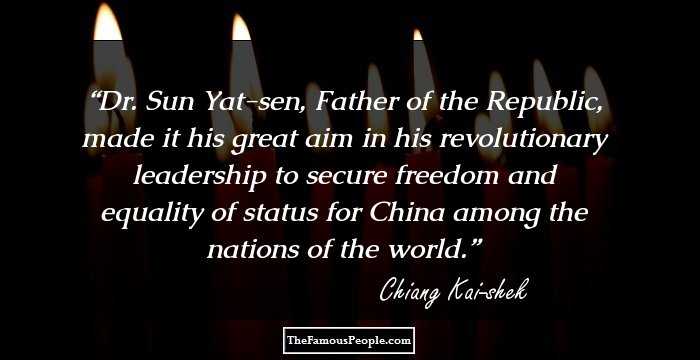
Dr. Sun Yat-sen, Father of the Republic, made it his great aim in his revolutionary leadership to secure freedom and equality of status for China among the nations of the world.
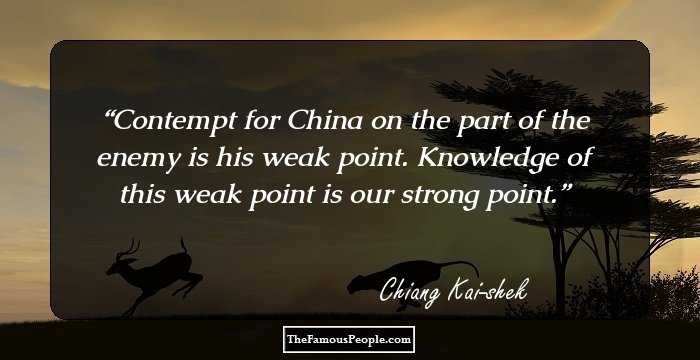
Contempt for China on the part of the enemy is his weak point. Knowledge of this weak point is our strong point.
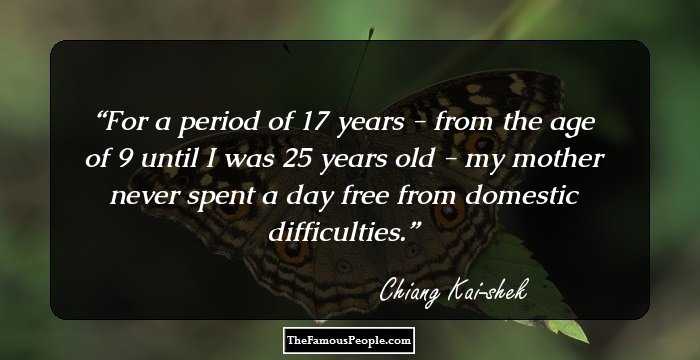
For a period of 17 years - from the age of 9 until I was 25 years old - my mother never spent a day free from domestic difficulties.
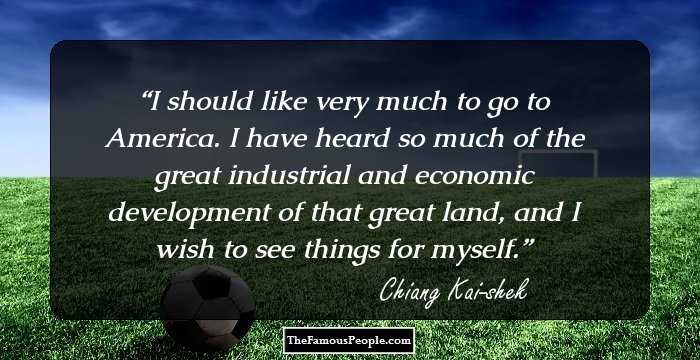
I should like very much to go to America. I have heard so much of the great industrial and economic development of that great land, and I wish to see things for myself.
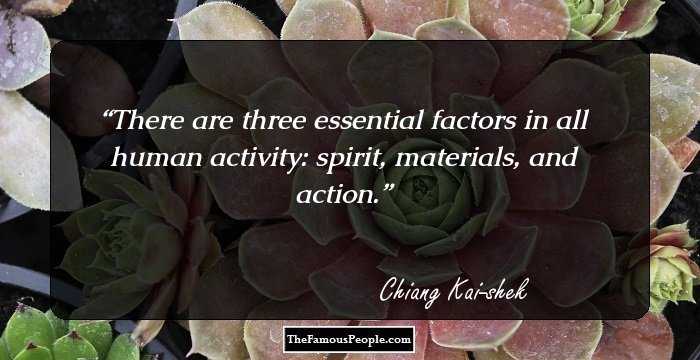
There are three essential factors in all human activity: spirit, materials, and action.
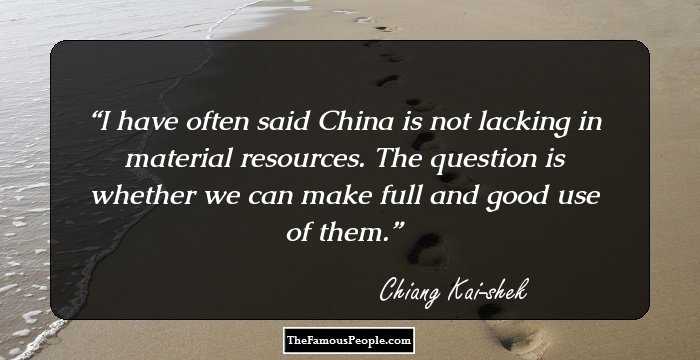
I have often said China is not lacking in material resources. The question is whether we can make full and good use of them.
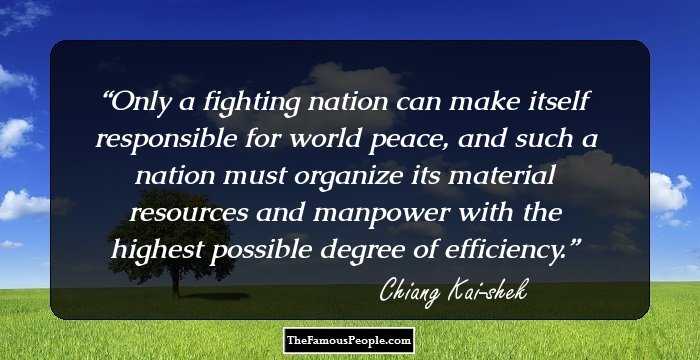
Only a fighting nation can make itself responsible for world peace, and such a nation must organize its material resources and manpower with the highest possible degree of efficiency.
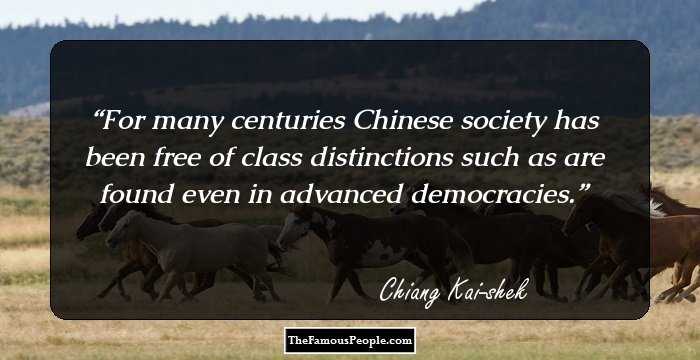
For many centuries Chinese society has been free of class distinctions such as are found even in advanced democracies.
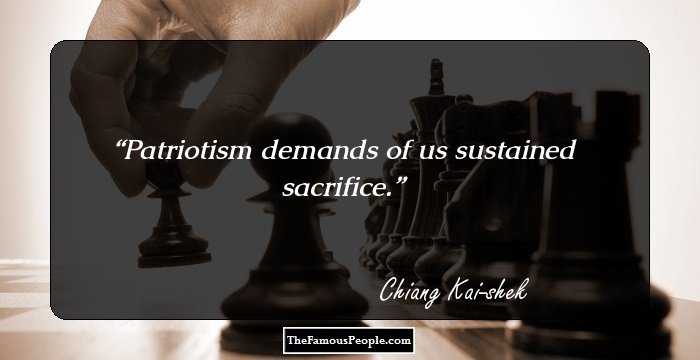
Patriotism demands of us sustained sacrifice.
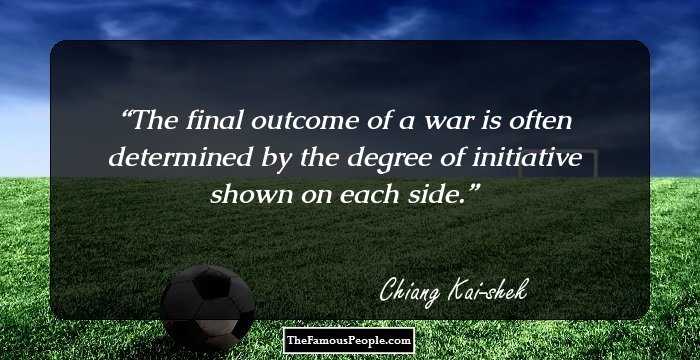
The final outcome of a war is often determined by the degree of initiative shown on each side.
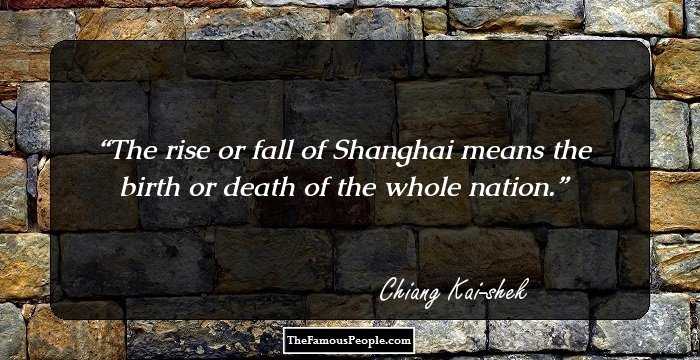
The rise or fall of Shanghai means the birth or death of the whole nation.
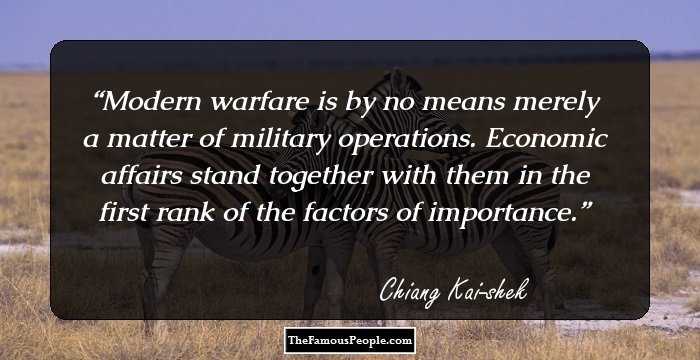
Modern warfare is by no means merely a matter of military operations. Economic affairs stand together with them in the first rank of the factors of importance.
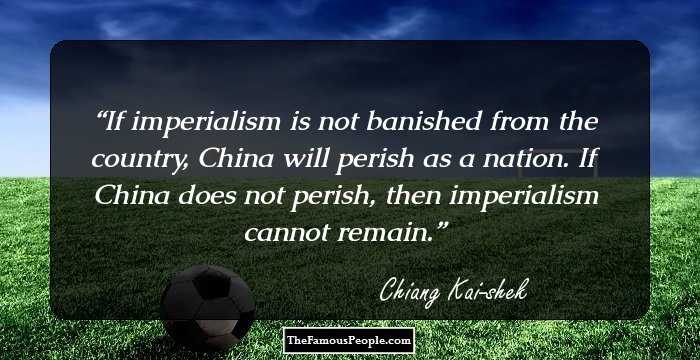
If imperialism is not banished from the country, China will perish as a nation. If China does not perish, then imperialism cannot remain.
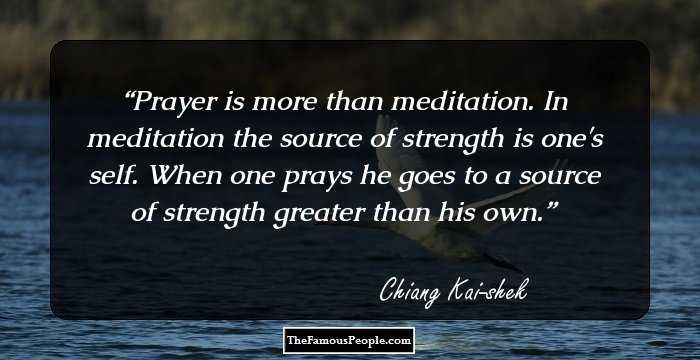
Prayer is more than meditation. In meditation the source of strength is one's self. When one prays he goes to a source of strength greater than his own.

My good health is due to a soup made of white doves. It is simply wonderful as a tonic.
We must teach our people the greatness of China's historical culture. In our educational program we must stress Chinese history and geography so that all may know and appreciate China's civilization of five thousand years and the far-flung boundaries of our ancient race. This will engender a greater faith in our own future.

